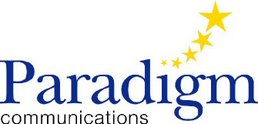I just thought I’d follow-up with you on the information I provided earlier about LiquidTalk (www.liquidtalk.com), and how it is providing a unique service for businesses, enabling them to push audio and video content to people’s wireless devices. LiquidTalk’s secure, web-based (SaaS) application for the enterprise enables remote employees to find, organize and create business-oriented audio and video content and push it proactively to their mobile devices. LiquidTalk has now expanded its solution to include the media-enabled BlackBerry® 8800 Series, BlackBerry® Pearl™ and BlackBerry® Curve™ smartphones, as well as iPhones and iPods.
Since I have had questions about the market demand for these capabilities, I thought I would share some data with you:
More and more workers are conducting business away from traditional office space.
Since I have had questions about the market demand for these capabilities, I thought I would share some data with you:
More and more workers are conducting business away from traditional office space.
According to employee mobility consultancy Runzheimer International1:
As much as 50% of the workforce may be “mobile employees”—those who spend at least 50% of business hours working from home, client sites, hotel rooms, airports and conference facilities; and while driving
44% of Fortune 2000 benchmark study participants intend to grow their population of teleworkers within the next year
Two-thirds of U.S. workers are mobile, spending 10+ hours outside the office each week (per analyst firm IDC)
50% of traveling workers will leave their notebooks at home in favor of other devices by 2012 (per Gartner)
Opportunities to connect and share knowledge and best practices in real time—once as simple as a short walk across the office—are limited. A key subset of the mobile workforce—sales and service—faces increasingly intense performance challenges.
Companies are asking reps to know more, as product lines multiply in scope and complexity, and sell more, as competition escalates and quotas increase. They’re leaning harder on a thinning crop of star performers to work longer hours to ramp up new reps and grow revenue streams:
80% of revenues are generated by just 20% of an organization’s sales force2
But more pressure does not drive a more productive workforce
Salespeople forget 85% of content and skills within four weeks of training3
Only 57% of reps made quota in 20074
Sales cycles have lengthened by 22% versus 3 years ago5
Rep turnover rates are at near-record highs (50%) and climbing6
A new generation of employee talent learns, communicates and works differently
With more than 64 million workers able to retire by the end of this decade7 and a strained workforce in need of help, Gen Y and the Millennials will have strong influence on the workplace; but their expectations and values are quite different:
“Digital natives” require information immediacy, constant connectivity
Mobile devices such as iPods and BlackBerrys are like extra limbs8
High importance is placed on peer input and teamwork
They expect to be seen, heard and accommodated9
Companies unprepared to address these workforce changes risk lost talent, lost revenue
65% of Fortune 2000 companies do not know if productivity is higher for their mobile employees.1 In fact, many organizations continue to manage business and employees in a traditional way, despite the risks:
A disengaged, disconnected workforce in a breakneck-paced, demanding workplace can contribute to a breakdown in how companies sell (and who does the selling)
How companies sell…may well become what differentiates market leaders from market laggards in the future10
If sales professionals could gain just 12 more minutes of productive time each day, top-line revenue would grow by 2 percent for the typical organization (Runzheimer)
Sources: 1 Runzheimer International 2005 Total Employee Mobility Benchmarking Study; 2 2004 Miller Heiman Sales Effectiveness Study; 3 ASTD Journal; 4 CSO Insights 2007 Sales Performance Survey; 5 Sirius Decisions; 6 CSO Insights Sales Effectiveness White Paper Series; 7 The Conference Board; 8 USA Today, Generation Next—Computer Comfort; 9 iconoculture.com; 10 CSO Insights 2007 Sales Performance Surve















